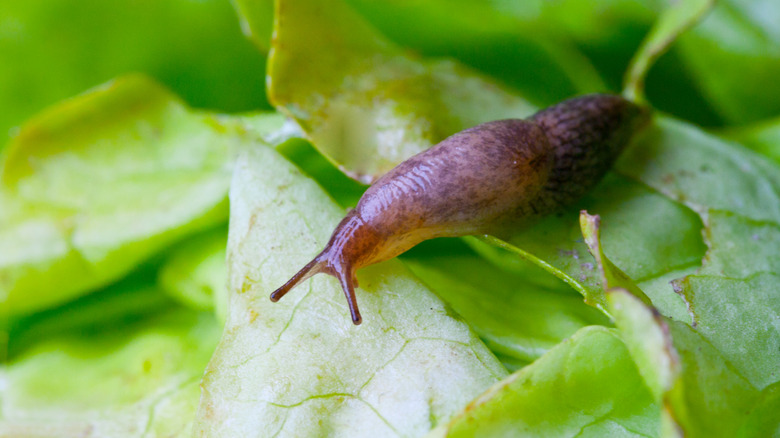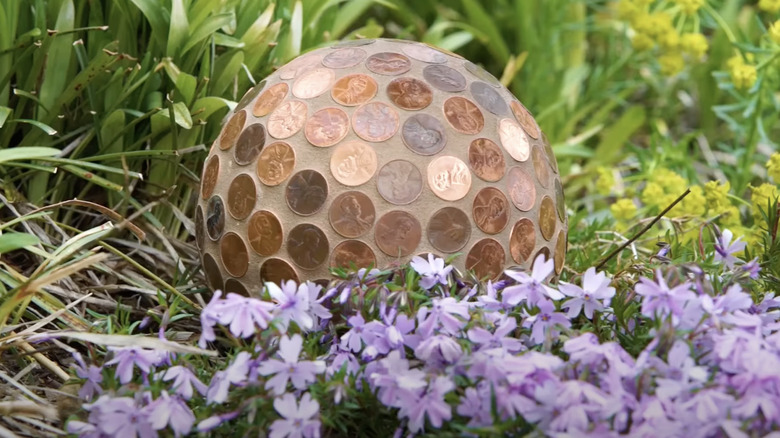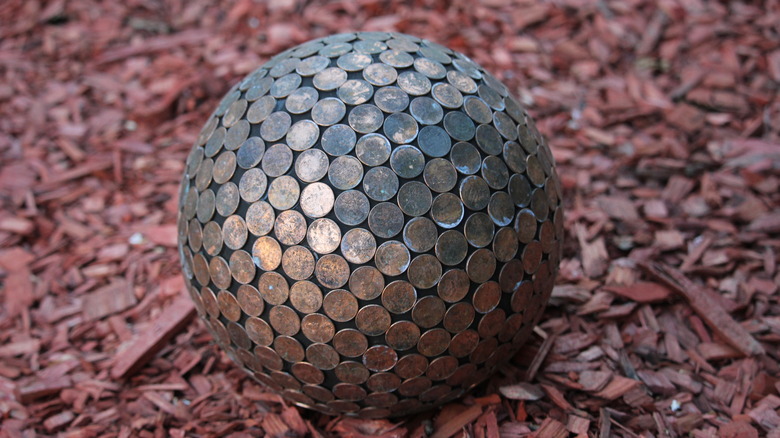Banish Pesky Slugs From Your Garden With This Clever Penny Hack
If the vegetation, vegetables, or fruit in your garden are covered in oddly-shaped holes, slugs are a likely culprit. Though you might not always witness them chewing on your produce because they are nocturnal, slugs love to eat strawberries, tomatoes, basil, lettuce, cabbage, and a variety of other plants, and they can do some serious damage to your garden, particularly to young plants. These mollusks are frustrating, but because they also eat dead bugs and leaves and are consumed by other animals, they are a crucial part of the environment. Still, if they're becoming a problem, one of the best ways to keep slugs out of your garden is with pennies.
To prevent slugs from munching your garden, try placing a round object covered in pennies near the plants the slugs have been feeding on. Copper is a great deterrent for slugs, since touching it gives them a feeling similar to a slight electrical shock. While modern pennies do not contain enough copper to be effective, coins manufactured before 1983 will do the trick.
How to make a slug-deterring penny ball
The easiest way to accomplish this hack is by super gluing pennies to an old bowling ball, which can often be found at thrift stores for a low price. It's important to use glue that is resistant to water and sunlight, since the ball will remain in your garden throughout the growing season. You can also try creating your own ball. Start by gluing pennies over the entire surface of a Styrofoam ball and covering it with sanded grout, making sure to fill the areas between the coins.
Once the grout is in place, use a wet paper towel or cloth to wipe any residue off the pennies. Allow the grout to dry and coat it with a sealant, but keep it off the copper. If the metal is covered, slugs won't mind crawling over the ball to get to your tasty plants. Once the sealant has completely set, put the ball directly in the path of the slugs.
How copper will protect your garden from slugs
Because slugs like dark and moist environments, plants that are in shady or wet spots will benefit more from being near your penny ball. If some of your plants are in direct sunlight, they may not need as much protection since slugs are less likely to hide beneath them during the day. By placing your penny ball near the plants that have been most disturbed by slugs, you'll help guard them from further damage. You can either place your ball beside potted plants on your porch, or set it right in the soil of your flowers or vegetable garden.
While shocking slugs to keep them away may sound inhumane, it's mild, and the slugs prefer to avoid the pennies altogether. The mollusks respond this way to copper because the metal has a reaction with the mucus that slugs produce, creating a sensation similar to a shock. Unlike insecticides or traps, this pest control method won't harm the slugs in your garden, and it won't spread chemicals that could hurt other wildlife as well.


